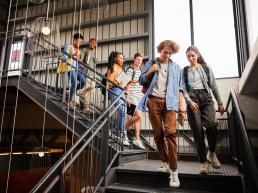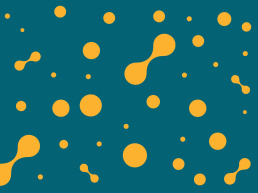Our guest at Atlantic Talks this week is Carlos Moedas, an Engineer by academic background, a Politician during one of the most complicated periods in the country’s recent history, and former European Commissioner.
From Alentejo to Lisbon, with passages through Boston and Brussels, the life of Carlos Moedas has been made of changes. He graduated in Engineering from the Instituto Superior Técnico in Lisbon but then went into Management, getting an MBA at the Harvard University in Massachusetts.
After working at Goldman Sachs and Deutsche Bank, he devoted himself to politics. A Social Democrat, he would become Assistant Secretary of State to Prime-Minister Pedro Passos Coelho during the rescue of the Troika. He was the liaison between the Portuguese Government and the group composed of the International Monetary Fund, the European Commission, and the European Central Bank.
The work as ruler earned him the appointment to European Commissioner for Research, Science, and Innovation, where he managed one of the largest financial envelopes ever allocated to this area until today.
And that’s the great passion he demonstrates. For Science, and for Europe, in this conversation with Filipe Santos Costa.
“Europe is open. We like openness, we like diversity, we like to have scientists from all over the world and we will always have our doors open. We can’t change that. If we change that, we are the same as the others, and that doesn’t matter to Europe.” – Carlos Moedas
The experience in the United States, and as European Commissioner, has given him the expertise and knowledge to see Europe’s strengths and weaknesses. But the current Administrator of the Gulbenkian Foundation does not fear Europe’s position in the future of Science and Innovation, despite the headlines in the newspapers and magazines about American power.
“We have Europe leading in what is Science. And this has always been true and happens in areas that today I say will always be those of the future [as the renewable energy industry].” – Carlos Moedas
But there are changes that can be made to follow the best thing that is being done on the other side of the Atlantic and benefit education in Europe. The future, he says, can go through more flexibility when creating higher education courses.
“What we already see in American universities is that they are no longer having what we call courses as they were made. That is, people no longer go to a course in a certain area. They are not going to be engineers, they will build their own courses.” – Carlos Moedas
You can listen to this episode of the Atlantic Talks where you usually listen to your podcasts or follow one of the links below.
Related Posts
3 de July, 2024
B+S Bispo D. Manuel Ferreira Cabral School, from Madeira, wins Atlântico Junior Award
Students win with a project to create…
29 de May, 2024
Five Fellows Selected for the Fulbright/FLAD Scholarship
Master's students will undertake a…
29 de May, 2024
FLAD Science Award Atlantic 2024: applications from June 1st
Young researchers can apply until June…



